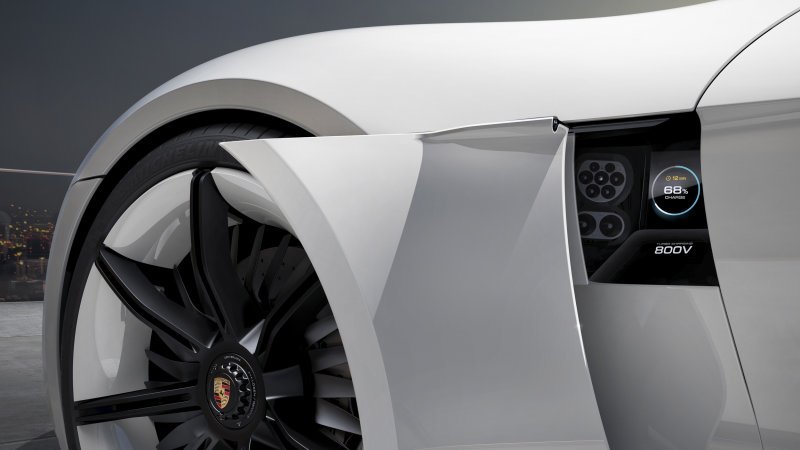Automakers Not Currently Promoting EVs Are Probably Doomed

A sudden push into electric vehicles seems ridiculous when gas guzzlers are selling so well. Make hay while the sun shines, right?
A quick glance at some facts and figures provides evidence that the automakers currently doubling down on internal combustion probably have some rocky years ahead of them. Fiat Chrysler Automobiles is a prime example of a volume manufacturer devoted to incremental gains for existing powertrains. Though FCA will kill off some of its more fuel-efficient models, part of its business plan involves replacing four- and five-speed transmissions with eight- and nine-speed units, yielding a fuel efficiency boost in the vicinity of ten percent over the next few years.
Recent developments by battery startups have led some to suggest that efficiency and capacity could increase by over 100 percent in the same time. Research and development budgets paint a grim picture for old guard companies like Fiat Chrysler: In 2014, FCA spent about $1,026 per car sold on R&D, compared with about $24,783 per car sold for Tesla. To be fair, FCA can't be expected to match Tesla's efforts when its entry-level cars list for little more than half that much.
But even more so than R&D, the area in which newcomers like Tesla have the industry licked is infrastructure. We often forget that our vehicles are mostly useless metal boxes without access to the network of fueling stations that keep them rolling. While EVs can always be plugged in at home, their proliferation depends on a similar network of charging stations that can allow for prolonged travel.
Tesla already has 597 of its 480-volt Superchargers installed worldwide, and that figure will continue to rise. Porsche has also proposed a new 800-volt "Turbo Charging Station" to support the production version of its Mission E concept, and perhaps other VW Auto Group vehicles. As EVs grow in popularity, investment in these proprietary networks will pay off — who would buy a Chevy if the gas stations served only Ford owners?
If anyone missed the importance of infrastructure, it's Toyota. Unlike Porsche, which recently went all-in on electrifying its fleet and developing new charging technology, Toyota has come up short in the construction of hydrogen fueling stations. The unfortunate result is that Toyota now has a very expensive hydrogen car it can't sell for lack of fuel. The company has resorted to paying a third-party operation to provide Mirai owners with a half tank at a time.
Consumer infrastructure is a major concern, but so is production capacity. Any company hoping to compete in the EV market will require a reliable source of competitive batteries. Building them cheaply also means building them at scale, like Tesla plans to do with its gigafactory in Nevada. But Tesla may have overplayed its hand with lithium-ion batteries. The next generation of batteries could triple the range of EVs, but they require different methods and materials for production. Tesla may have spent $5.5 billion on what some will call an obsolete factory but one that Tesla CEO Elon Musk says can be updated to new chemistries if needed.
The future of the automotive industry will be determined by a few key trends. Battery advances will be measured in orders of magnitude, while internal combustion engines will improve slowly. The choice between gas and electric will be largely overshadowed by the battle between competing electric powertrain systems and their related infrastructure. Many gas-powered vehicles will continue to sell until buyers can purchase an EV that reaches its 1,000-mile range on a ten minute charge for the same price.
That day isn't far off.
The few companies that master battery technology and establish their infrastructure early on will have the advantage over their competitors. Other companies could give up on powertrain development altogether and source batteries externally, like GM is doing for its Bolt EV. The most obvious indicator that automakers will be reduced to coachbuilding and software design is the rise of autonomous vehicles. How much will consumers care about how distinctive a motor feels if they no longer drive the car?
To those of us who love internal combustion, these are sad developments. Strangely, the losers will be an odd mix of the companies that cared too much about fuel economy and those that hardly cared at all. Brands like Jeep will soldier on with buyers who will pay for gas until it becomes inconvenient. Other brands like Hyundai will likewise sell their higher fuel economy models until EVs outpace them in price, performance, and reliability. By the time they get into EV development, they will be far behind.
We're at a turning point in the auto industry. Like the shift from propellers to jets, or from VHS to DVD, this evolution will decimate some giants and create some new ones. The companies that come out on top will have mastered the battery's technology and optimized its supply chain. And there's a significant chance that in 2030, your car could be made by a startup that built a better battery and upset the market.
Related News
